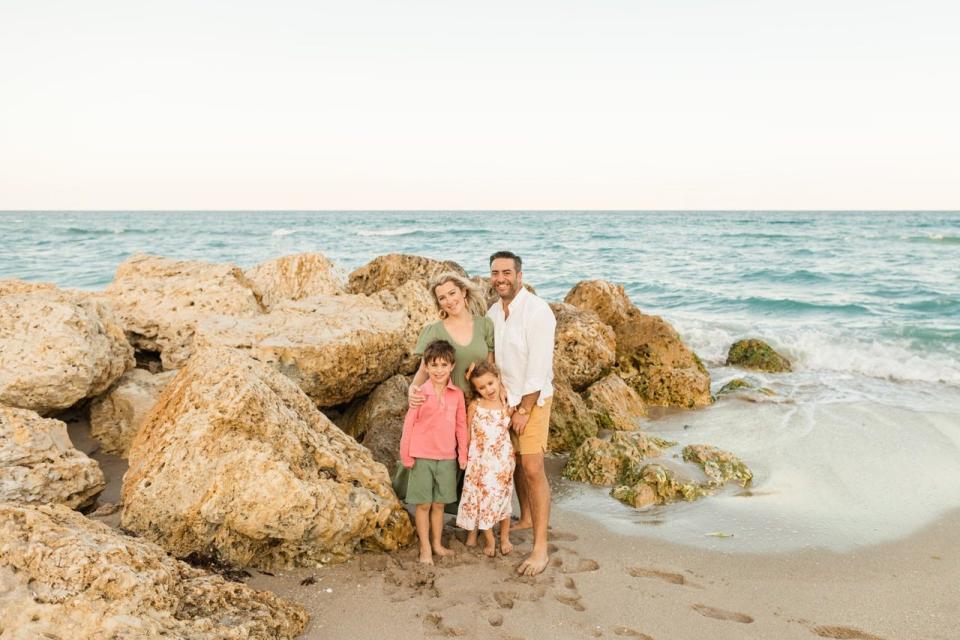My daughter has life-threatening food allergies. I wish someone could tell me she will be able to live a full future.
My daughter's first allergic reaction was when she was 3 years old.
Her allergies gave me a crushing anxiety that would minimally subside after a successful meal.
I want someone to tell me she will be able to live a full life despite her allergies.
My daughter is almost 6. She's just lived through her second allergic reaction that required an epinephrine injection and ambulance ride to the hospital following a few bites of food that we had no idea would induce a life-threatening reaction.
Allergic reactions are acute. They shock you into life-saving, time-sensitive action and leave your mind exhausted and heart racing.
Our first experience with this was a little over two years ago, only weeks after having first learned about the severity of food allergies from a nonprofit organization founded by devoted parents who tragically lost their beautiful son, Oakley, to an allergic reaction. A heartbreaking and impressionable story ultimately saved our daughter's life.
She was 3 when she had her first allergic reaction
After a few bites of cashew milk ice cream at a holiday event in downtown West Palm Beach, I realized my 3-year-old was going into anaphylaxis. Screaming for help led a physician from the crowd to us, who happened to have an EpiPen, something I knew she needed thanks to Oakley's parents' efforts — while he injected my daughter's thigh, we called 911, and I watched my daughter regain full breath and normality to her face within minutes.
I thought I'd never recover from this. My whole life felt flipped upside down with new allergist appointments, blood and skin tests, and triple-checking that EpiPens were in our hands or bags at all times. I felt like a 50-pound weight was on my chest every day when I woke up, lifted temporarily after a successful, uneventful meal that spared a threat to my child's life. The anxiety was all-consuming.
Time healed this wound to the extent that it could. After more than a year, I began to talk about the initial experience freely and even inspired people I knew (or didn't know) to finally get that EpiPen prescription filled. Honestly, it was therapeutic to share about it.
Now, just days following her second reaction, I feel absolutely deflated. This time in the familiarity of our home, and with several sets of EpiPens well within reach, we acted swiftly after avocado toast with new-to-her seasoning left our daughter's mouth and tongue feeling itchy and swollen, and her skin covered in red, bumpy hives.
As her mom, I'm anxious about her future
Will I ever be able to let my guard down again? My nervous system wants me to. It is sick of being on high alert, examining every food coming into our home, into her school, and available to us wherever we go to eat.
I can feel my blood pressure rise when I relive the traumatizing experiences or when I consider a reaction happening again in the future. It's not healthy for me, I know that. But this is my child, I say, as I reason with my physical deterioration, the being I love with every centimeter of my soul and who I live to protect.
The line between paranoia and preparedness feels blurry with food allergies. You will make yourself sick with worry by imagining something that hasn't even happened, but neglect for precaution can very well put your child's life at risk.

The truth is, there's no choice but to cope and prepare and advocate. Everyone must eat, which is a part of our life, so we must accept it and take it one day at a time. I desperately want someone or something to write me and tell me, "with one 100% certainty, your daughter will be able to go out to eat with a friend's family, enjoy college safely, study abroad, and grab takeout without a heavy pit in her stomach." That note is not coming. I need to accept that, too. My therapist warned me long before I found myself back in this position that I will never, ever know with absolute certainty that my kids are completely fine at all times. If parenthood isn't a lesson in control, then I don't know what is.
Our extroverted, enthusiastic daughter is planning her birthday months in advance because "turning 6 is serious," she says, and she lives for a good theme and cake design. We laughed at her eagerness, but after 48 hours of reflection, I really welcome it. Yes, her birthday is serious.
We will celebrate another year of her life and the richness she brings to our family in countless ways. Foods are out to get her, but she won't let them. And I'm going to cope by continuing the things that regulate me: therapy, medication, meditation, vitamin D, dates with my husband, dinners with my family, group texts with my friends. One day at a time. We've got this: me and my socially acceptable level of paranoia.
Meg George is a mom, author, speaker, and philanthropy advisor. She is president of a philanthropy consultancy, George Philanthropy Group. Her debut book, "What is Philanthropy to Philomena?" centers around the power and joy of giving back.
Read the original article on Business Insider


